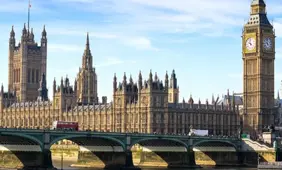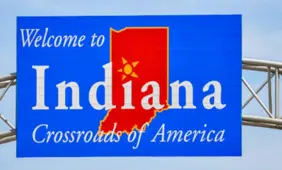Google Bans Offline Real‑Money Gambling Ads in 35 Countries
Google has banned advertising for offline real‑money gambling in jurisdictions where such promotion is illegal.

In an update published on November 19, Google expanded its gambling advertising restrictions to explicitly prohibit marketers from promoting offline real‑money gambling in 35 jurisdictions where such ads breach local law. The change took effect immediately, requiring advertisers to revise campaigns that target or appear in those locations.
The list spans a wide geographic range and includes jurisdictions such as Afghanistan, China, India, Italy, Saudi Arabia, Singapore, Turkey, Ukraine and the United Arab Emirates, among others. Google said the move aligns its advertising standards with local legal frameworks and is intended to reduce illicit promotion of land‑based gambling where it is prohibited.
The policy change is the latest in a series of Google updates this year aimed at tightening controls over gambling and gaming-related advertising. Earlier revisions clarified what constitutes gambling‑related content, expanded enforcement options including account restrictions for repeat offenders, and adjusted rules for sweepstakes and real‑world‑reward games. Those measures followed industry and regulator pressure to stem the spread of illegal betting ads, particularly in regions with strict gambling prohibitions.
"Advertisers must take this new policy seriously – non‑compliant campaigns risk ad disapproval or account sanctions", said Laura Mendes, director of regulatory affairs at AdIntegrity, an ad compliance consultancy. "Advertisers frequently rely on geo‑targeting and automated systems; now they need rigorous legal checks on the ground to ensure promotions for land‑based gambling do not appear where they are unlawful."
For global operators and marketing agencies, the update raises immediate compliance demands. Ad platforms, programmatic buyers and creative teams will need to audit existing materials and targeting configurations to remove messaging that explicitly promotes offline wagering in the affected jurisdictions. Google did not publish a separate certification program tied to this change, but the company has repeatedly signaled stronger penalties – including ad disapprovals and potential account suspensions – for repeated violations of its gambling policies.
Compliance Pressure and Industry Reaction
Industry reaction has been mixed. Some operators welcomed the clarity. "Clearer rules help legitimate businesses avoid unintentional breaches and protect consumers in sensitive regions", said Marcus Li, head of legal at a European casino operator. "At the same time, the operational burden of policing historic assets and third‑party distributors is significant." Others warned smaller advertisers may be disproportionately affected by stricter enforcement.
Regulators in several markets have in recent years intensified scrutiny of gambling advertising. In India and parts of the Middle East and Southeast Asia, authorities have flagged illegal advertising as a growing concern. Google’s policy update mirrors those regulatory stances and underscores the platform’s effort to harmonize its global ad rules with national laws.
Related: Google Revises Gambling Ads Policy with Stricter GuidelinesMore Regulation
Practical Steps for Advertisers
Advertisers and agencies should take several immediate steps to remain compliant: conduct a full inventory of gambling‑related creative and landing pages; implement precise geo‑fencing to prevent ad exposure in prohibited jurisdictions; update negative keyword and placement lists; and consult local legal counsel where uncertainty remains. Maintaining clear documentation of compliance efforts will help defend against enforcement actions.
"Companies must combine technical controls with legal oversight", advised Dr. Sarah Jenkins, a policy analyst at the Centre for Digital Policy. "Relying solely on platform tools is no longer sufficient. Brands should be able to demonstrate proactive steps to prevent illegal promotion, especially where local law is explicit."
As digital platforms continue to refine gambling policies, advertisers operating across borders will face ongoing compliance complexity. The November change is likely to prompt further industry dialogue between platforms, regulators and operators about how to balance lawful marketing, consumer protection and operational feasibility.
RELATED TOPICS: Regulation
Most Read
Finland Publishes 2-4-2 Gambling Harm Framework Before 2027 Market Opening
Feb 18, 2026Must Read
 Interviews
Interviews
Exclusive Interview: Levon Nikoghosyan Shares AffPapa Winning Formula for Successful iGaming Events
Dec 03, 2025 Interviews
Interviews






Review this New Post
Leave a Comment
User Comments
Comments for Google Bans Offline Real‑Money Gambling Ads in 35 Countries